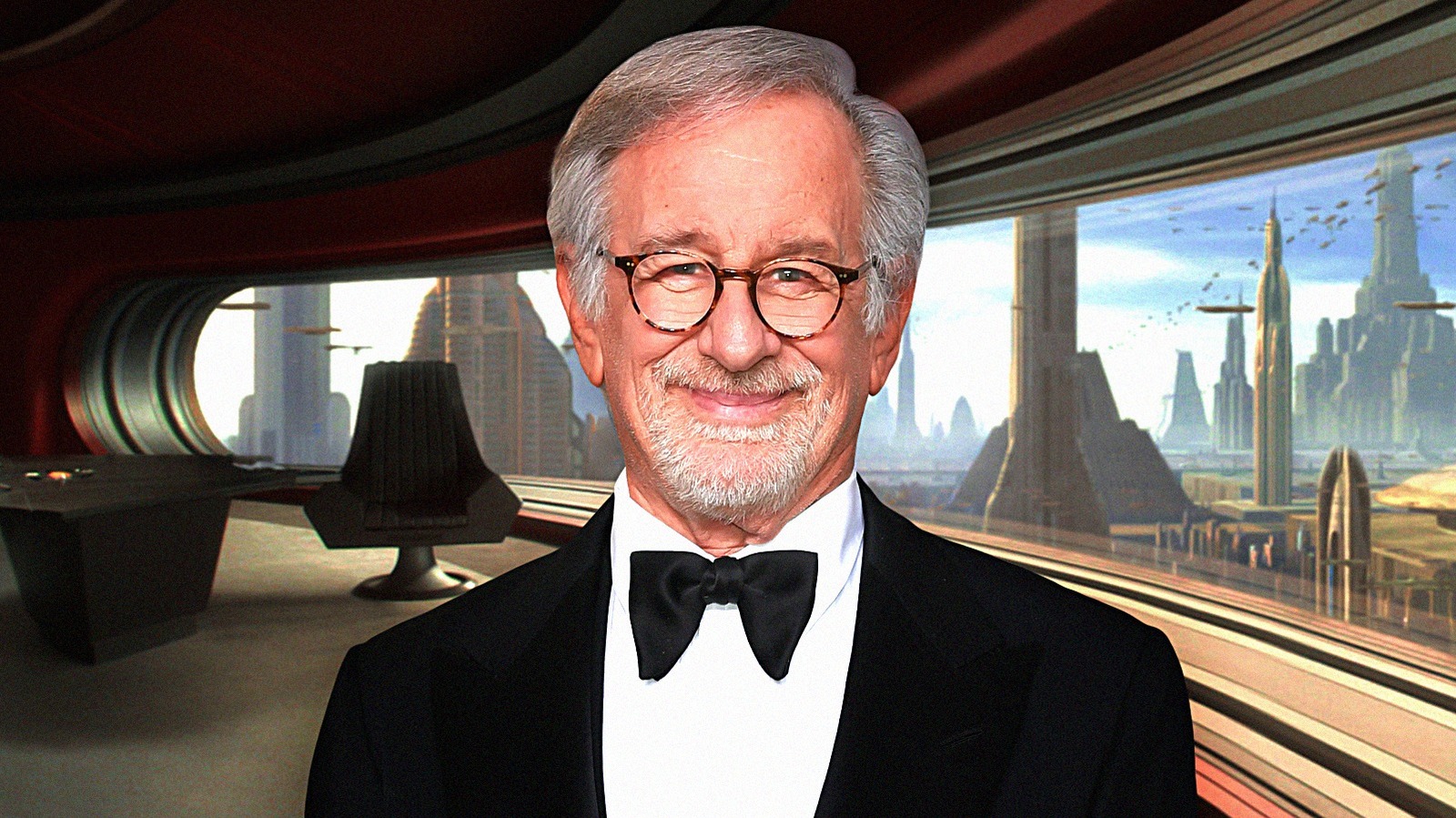Celebritiy
Spielberg Considers Star Wars Film Lucas’ Most Accomplished Work

Steven Spielberg has once again drawn attention with his intriguing views on the “Star Wars” saga, particularly regarding a film that many fans dismissed. Spielberg has publicly declared that George Lucas’ “Star Wars: Episode II — Attack of the Clones,” released in 2002, ranks as his second favorite in the franchise, just after the highly acclaimed “The Empire Strikes Back.” He expressed his admiration for the film in an older interview with Cinescape, where he noted the action sequences, comparing them favorably to those from James Cameron’s “Terminator 2: Judgement Day.” Spielberg emphasized that he believed Lucas delivered his finest directing performance in this installment.
While “Attack of the Clones” has often faced criticism, Spielberg’s perspective highlights its ambition and narrative depth. He praised Lucas for crafting a blockbuster that tackled complex themes such as the erosion of democracy and the orchestration of war as a means for political gain—elements that resonate even today.
In an insightful exchange with the late Roger Ebert, Spielberg further lauded “Attack of the Clones,” designating it as Lucas’ most significant accomplishment. He recognized the film’s grand scope, describing it as operatic, but expressed his hesitance toward the extensive use of computer-generated environments, preferring tangible sets that inspire creativity among actors. Spielberg remarked on the bittersweet evolution of filmmaking, lamenting the potential decline of physical sets in favor of virtual ones.
The camaraderie between Spielberg and Lucas has significantly influenced cinema over the decades. Their storied friendship includes playful box office bets and subtle nods to one another’s work, such as the references to Yoda in “E.T.” Additionally, Lucas provided support during the post-production phase of “Jurassic Park” while Spielberg was engrossed in “Schindler’s List.” The duo also teamed up to create the iconic “Indiana Jones” series.
Interestingly, Spielberg was initially declined by Lucas when he offered to direct a film in the original trilogy. However, he later changed his mind, inviting Spielberg to direct “The Phantom Menace” alongside Ron Howard. Ultimately, the pair decided that Lucas should continue at the helm, citing the daunting task of following the original trilogy.
Despite not directing a “Star Wars” film, Spielberg has left his mark on the franchise. He was integral in introducing George Lucas to composer John Williams, paving the way for the iconic score of “A New Hope.” Additionally, during the development of “Revenge of the Sith,” Spielberg provided valuable feedback on animatics, particularly for pivotal scenes like Order 66 and duels featuring Yoda and Darth Sidious. It was even reported that he contributed to the creative concept behind some of the film’s most memorable moments, including the unforgettable “high ground” dialogue during the Mustafar lightsaber battle.
While Spielberg’s initial critique of CGI sets was rooted in personal preference, it appears his viewpoint has shifted, as evidenced by his employment of extensive CGI in recent works like “Ready Player One” and “The BFG.” This evolution signifies a broader acceptance of technology’s role in modern cinema, marking a fascinating chapter in Spielberg’s storied career.
